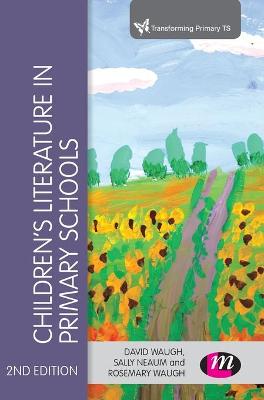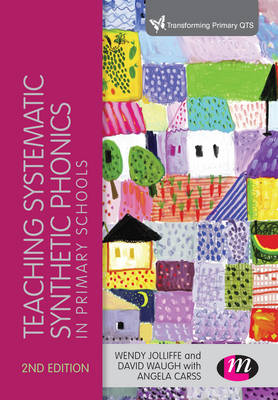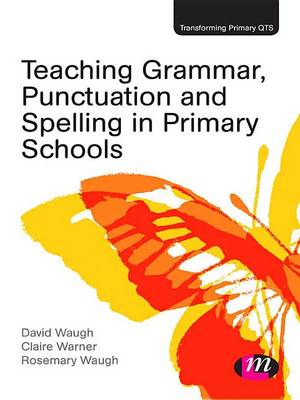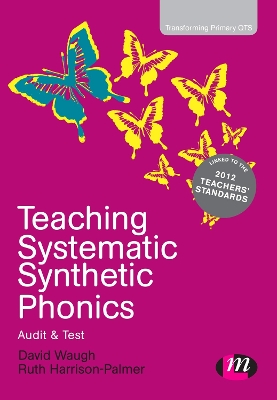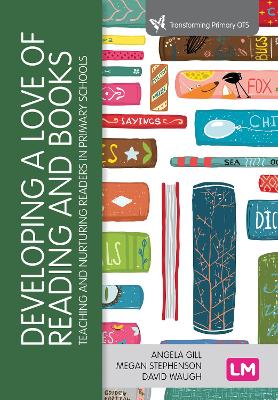Transforming Primary QTS
5 total works
Children's Literature in Primary Schools
by David Waugh, Sally Neaum, and Rosemary Waugh
How can you help children to develop a love of reading and books? Which books are the best ones to use in primary teaching?
How do you make the most of children's literature in teaching across the curriculum?
Trainee and experienced primary school teachers need an advanced knowledge of children's literature. This is your guide to the range of and scope of children's literature for the primary classroom. Through the exploration of different genres it covers a wide range of literature and helps you to consider what we mean by literature. Case studies that model good practice are included with suggestions for practical activities using literature to enhance teaching across the curriculum. Throughout, book recommendations show how specific texts can be used for teaching in exciting and innovative ways.
What's new to this edition?
- updated in line with the new Primary National Curriculum
- includes new content on supporting children for whom English is an Additional Language
- an extensive list of book recommendations for primary teaching
- how to get more out of classic texts
- introduces new texts and new children's authors
Teaching Systematic Synthetic Phonics in Primary Schools
by Wendy Jolliffe, David Waugh, and Angela Gill
Systematic synthetic phonics is a key strategy in the teaching of reading. This text supports trainee teachers working towards primary QTS in how to use phonics effectively. It explores what works in phonics teaching, and why.
It begins with the subject knowledge that underpins effective teaching and goes on to explore pedagogy from the early years to Key Stage 2. The book includes a review of different popular phonics programmes, set against the DfE (2011) criteria for high-quality phonics teaching.
This second edition has been updated in line with the new National Curriculum, includes new guidance on the Year 1 phonics screening check and new lessons ideas and practical guidance for teaching phonics.
Teaching Grammar, Punctuation and Spelling in Primary Schools
by Dr David Waugh, Claire Warner, and Rosemary Waugh
The text is really accessible and includes lots of examples and teaching ideas, enabling you to approach teaching with ease. Detailed examples of effective lessons show you how to engage children's interest in some of the more formal aspects of writing and throughout, activities and practical examples demonstrate how you can translate this learning into the classroom.
This second edition has been updated in line with the new National Curriculum for Key Stages 1 and 2. A new chapter is included to explore the national SPAG tests in primary schools. The tests are explained and advice on how to approach them is included. The text will enable you to teach grammar, punctuation and spelling effectively supporting your class in all their writing, across the primary curriculum.
Teaching Systematic Synthetic Phonics
by David Waugh and Ruth Harrison-Palmer
If you are training to be a primary school teacher you need to have, and to demonstrate, a clear understanding of systematic synthetic phonics to meet the Teachers' Standards. This companion text to the popular Teaching Systematic Synthetic Phonics in Primary Schools enables you to audit your knowledge, making you more aware of the subject and the areas in which you need to know more. In all chapters, self audits are accompanied by guidance on next steps for developing your knowledge. All chapters feature sections that link your learning to the classroom, showing you how to use your knowledge to teach phonics. Designed to help build your confidence and develop your knowledge of phonics, this text supports your development as an effective teacher of reading.
This is a companion text to:
Teaching Systematic Synthetic Phonics in Primary Schools
Joliffe, Waugh and Carss
David Waugh is Director on Primary PGCE at Durham University where he is also the subject leader for English. He has published extensively in Primary English. David is a former deputy head teacher, was Head of the Education department at University of Hull, and was Regional Adviser for ITT for the National Strategies from 2008 to 2010.
Ruth Harrison-Palmer is a former acting head teacher. She has worked for the National Strategies and Cumbria Local Authority as a literacy consultant. Currently Ruth has a senior role in ITE at the University of Cumbria.
Developing a Love of Reading and Books
by Angela Gill, Megan Stephenson, and David Waugh
The National Curriculum focuses heavily on promoting reading for pleasure and engaging pupils using a range of diverse and inclusive texts and materials.
This text supports trainee teachers working towards primary QTS and Early Career Teachers to understand the importance of supporting children to become readers, enjoy reading for pleasure and develop higher level reading skills. It includes guidance, case studies and theoretical perspectives to show trainee teachers how they can develop children's reading.
